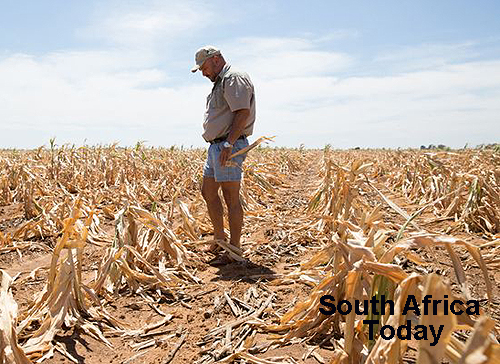 Weather events – like football – keep getting nastier, and the more we comment on them the less attention we pay.
Weather events – like football – keep getting nastier, and the more we comment on them the less attention we pay.
El Nino is flooding away America, but it’s also drying to a crisp much of southern Africa. That’s what severe weather is all about: When part of the world burns up another part freezes solid.
FEWS, the world’s early famine warning system, issued a severe drought alert last week for portions of eastern southern Africa. FEWS is not a weather forecaster per se, but an organization that anticipates what the weather will do:
In this case, a “food security crisis … is considered likely in the latter half of 2016 and early 2017.” ‘Food Security Crisis’ is just a step above “famine.”
Absolutely the world’s best forecaster globally is America’s own and proud NOAA. (That’s only since the Obama administration, by the way. Previous Republican administrations had eviscerated its funding.)
NOAA predicts a moisture deficit crisis for all of Zimbabwe, more than half of Mozambique, much of Zambia, some Botswana and nearly the entire eastern half of South Africa.
NOAA’s predictions further out suggest a return to normal. From FEWS perspective, though, that’s not good, because starting in March “normal” in southern Africa is the start of a long dry season.
Combined with the failure of rains in the past rainy season because of El Nino, food production will be lost over much of the area.
Tourism may also be effected. Earlier this year a number of Okavango Delta camps suspended their water-based activities because the water levels were so low.
There’s been some improvement, but not enough according to the University of Botswana:
“Tourism activities have so far become the first casualties of the on-going drought as water levels go down in the Okavango Delta,” a professor of tourism from the university warned last week.
My own sources suggest it’s not quite that bad yet, but water-based activities are being assessed on a daily basis.
More critical to the wildernesses of southern Africa, though, antelope populations like sassaby, wildebeest, hartebeest and zebra are declining. These great herds are less adaptable to drought conditions than other ungulates like giraffe and buffalo. (From a tourist point of view, by the way, dry conditions usually mean better predator encounters.)
Further east, though, including the great Kruger National Park, its equally famous surrounding private reserves like Sabi Sands, and almost all of Zambia’s reserves could face real trouble next year. When elephants start dying tourism isn’t exactly boosted up.
Humans can’t handle a drought as well as animals.
“Now that the drought has become even more severe, [food] production has nosedived,” the Botswana Agricultural Marketing Board announced a couple weeks ago.
South Africa’s third largest city, Durban, began water rationing last July, and the situation has worsened considerably. By November publicly provided water systems were cut back 50% to both residences, businesses and farmers.
Sunday Durban began distributing bottled water to more than 2 million residents.
Compared to those in the South we in the North handle climate change pretty well, at least so far. Despite the headline news of apartments in mudslides, entire cities flooding down the river and beachfront eroding away, we aren’t starving and we aren’t likely to.
That’s not the case in the South. South Africa is the exception, although the climate situation there is so severe that it’s likely to put the country into a recession. But even that academic economic term carries a certainty that while dinners-out will be fewer, dinners-in will still happen.
Elsewhere in Africa’s south, that’s not the case. With each new climate change event there is greater hurt put on the world. Building walls might prevent the pain from getting to us right now, but someday it’s just going to get too severe.